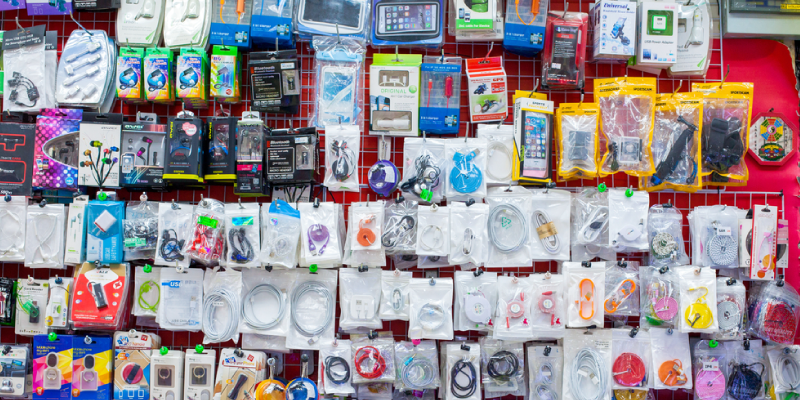Introduction
Xiaomi Corporation, one of the leading global brands in electronics and technology, has increasingly gained traction in international markets, including Brazil. The company, known for its innovative smartphones, has also made significant strides in mobile phone accessories. In Brazil, a rapidly growing mobile phone market, Xiaomi is strategically positioning itself to capitalize on the evolving demands of consumers. This article explores the company’s strategy, innovations, and developments tailored to the Brazil Mobile Phone Accessories Market.
Xiaomi's Strategy in Brazil
Xiaomi's entry into the Brazilian market was initially met with challenges typical of emerging economies, including competition, price sensitivity, and local regulations. However, the company’s
strategy has been centered around providing high-quality yet affordable products. Xiaomi’s business model emphasizes a direct-to-consumer approach, reducing costs by selling primarily through e-commerce and its own Mi stores.
In Brazil, Xiaomi has focused on localizing its operations by establishing partnerships with local retailers and e-commerce platforms like Mercado Livre and Americanas. This strategy ensures greater reach and accessibility, especially in a market where consumers are highly engaged in online shopping. Additionally, Xiaomi has been aggressive in terms of pricing, making its products more attractive compared to competitors like Samsung, Apple, and local brands.
Innovations in Mobile Phone Accessories
Xiaomi has been at the forefront of innovations in mobile phone accessories, continuously enhancing its portfolio with a wide range of complementary products for smartphones. Some of the key innovations that have found their way into the Brazilian market include:
· Smartphone Cases and Covers: Xiaomi offers a variety of stylish and protective phone cases that not only cater to aesthetics but also provide superior protection through shock-absorbent materials.
· Power Banks: Power banks are crucial in Brazil, where electricity infrastructure can be unreliable in some areas. Xiaomi’s power banks, with their high efficiency and fast-charging capabilities, are particularly popular.
· Earbuds and Headphones: As consumer demand for wireless audio solutions grows, Xiaomi has tapped into this trend with its true wireless earbuds (TWS), offering great sound quality at competitive prices. The Mi True Wireless Earbuds are a popular choice in Brazil, capitalizing on the growing trend of mobile music consumption.
· Smartwatches and Wearables: Xiaomi’s range of smartwatches and fitness bands has been an emerging market trend, providing Brazilians with affordable alternatives to premium wearables. The Mi Band series, known for its fitness tracking capabilities, is one of the best-selling wearables in Brazil.
· Chargers and Cables: With the increasing reliance on mobile devices for day-to-day activities, Xiaomi has diversified its accessory offerings by producing high-quality, durable charging cables and fast chargers that are compatible with multiple devices.
Emerging Developments in the Brazilian Market
The mobile phone accessories market in Brazil has witnessed significant growth, driven by factors such as increasing smartphone penetration, rising disposable income, and the need for enhanced mobile experiences. Xiaomi has adapted to these trends by focusing on key developments in the following areas:
· Localization and Customization: Xiaomi has placed a strong emphasis on creating products that cater to the unique needs of Brazilian consumers. The company’s mobile accessories are designed to work seamlessly with local telecom providers and infrastructure, enhancing the user experience.
· Sustainability: Xiaomi has taken steps toward sustainability, which is an important aspect for Brazilian consumers, who are becoming more environmentally conscious. The company is exploring ways to make its accessories more eco-friendly, such as using recyclable packaging and energy-efficient production processes.
· Smart Home Integration: Another development that Xiaomi is capitalizing on is the growing trend of smart homes in Brazil. With the rise of IoT (Internet of Things) devices, Xiaomi has been promoting its mobile phone accessories alongside smart home products, such as smart bulbs, security cameras, and smart plugs. This integration allows consumers to control multiple devices from a single mobile interface.
· 5G Integration: As Brazil begins its 5G rollout, Xiaomi is well-positioned to leverage this new technology. The company is integrating 5G-compatible features into its accessories, ensuring that Brazilian consumers are prepared for the next-generation mobile network with devices that enhance performance and connectivity.
Challenges and Opportunities
Despite Xiaomi’s strong presence and strategic initiatives, it faces challenges in Brazil. The market is highly competitive, with entrenched players like Samsung, Motorola, and Apple dominating the mobile accessories landscape. Moreover, the local economy, characterized by fluctuating inflation rates and currency instability, can make pricing a challenge.
However, these challenges present opportunities for Xiaomi to continue innovating and differentiating itself through competitive pricing, innovative product designs, and localized customer experiences. Furthermore, as the Brazilian market for mobile accessories is still expanding, Xiaomi has the potential to capture a larger share through strategic marketing and tailored product offerings.
Conclusion
Xiaomi’s approach to the Brazilian mobile phone accessories market highlights its ability to adapt to local demands, integrate cutting-edge innovations, and provide high-quality products at affordable prices. By focusing on customer-centric strategies and developing products that enhance the mobile experience, Xiaomi has positioned itself as a key player in Brazil. As the mobile market continues to evolve, Xiaomi's commitment to emerging technologies and sustainable practices will likely propel it to even greater success in the years ahead.





Comments